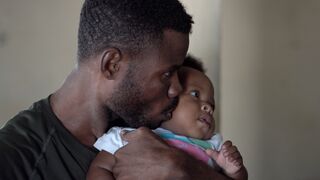Resilience
Building Resilience in Black Youth
Six psychological tips to promote resilience.
Posted February 15, 2021 Reviewed by Lybi Ma

Resilience is the ability to overcome difficulties and adapt to changes in life. For example, many Black kids and their families may have experienced difficulties related to COVID-19 but they have been able to maintain their emotional and psychological health despite these difficulties. Several different types of resilience have been described including psychological, emotional, and community.
Black History Month and Resilience
Black History Month is an important moment to celebrate the legacy and contributions of Black people to society. Some scholars1 have described how Black History Knowledge (BHK) helps “foster psychological liberation, healthy functioning characterized by a conceptual shift from a narrative rooted only in oppression to a narrative that acknowledges the strengths, accomplishments, and creativity of Black people throughout their history”. Furthermore, BHK can provide Black youth with knowledge of the historical experiences of Black people in America to provide them with a healthier identity and it can help promote resilience1.
Six Ways to Build Resilience in Black Youth
Although being resilient doesn’t prevent children and teens from experiencing emotional difficulties in the face of negative life events. Research demonstrates that resilience helps to reduce risk and promote healthy development. Below are a few tips from the American Psychological Association.
- Make connections: Teach your child the importance of engaging and connecting with their peers, including the skill of empathy and listening to others. This is extremely important given some limitations due to the pandemic. Find ways to help children foster connectivity by suggesting they connect to friends and family through phone, video chats, and texts. Connecting with others provides social support and strengthens resilience.
- Maintain a daily routine: Sticking to a routine can be comforting to children, especially younger children who crave structure in their lives. Work with your child to develop a routine, and highlight times that are for school, work, and play. Particularly during times of distress or transition, you might need to be flexible with some routines. At the same time, schedules and consistency are important to maintain.
- Teach your child self-care: Teach your child the importance of basic self-care. This may be making more time to eat properly, exercise, and get sufficient sleep. Make sure your child has time to have fun, and participate in activities they enjoy. Caring for oneself and even having fun will help children stay balanced and better deal with stressful times.
- Nurture a positive self-view: Help your child remember ways they have successfully handled hardships in the past and help them understand that these past challenges help build the strength to handle future challenges. Help your child learn to trust themselves to solve problems and make appropriate decisions. At school, help children see how their individual accomplishments contribute to the well-being of the class as a whole.
- Keep things in perspective: Even when your child is facing very painful events such as COVID-19, help them look at the situation in a broader context and keep a long-term perspective. Although your child may be too young to consider a long-term look on their own, help them see that there is a future beyond the current situation and that the future can be good. A positive outlook can help children to see the good things in life and keep going even in the hardest times.
- Accept change: Change can be scary for children and teens. Help your child see that change is part of life and new goals can replace goals that have become unattainable. It is important to examine what is going well and to have a plan of action for what is not going well. In school, point out how students have changed as they moved up in grade levels and discuss how that change has had an impact on the students.
Copyright 2021 Erlanger A. Turner, Ph.D.
References
[1] Chapman-Hilliard, C., & Adams-Bass, V. (2016). A conceptual framework for utilizing Black history knowledge as a path to psychological liberation for Black youth. Journal of Black Psychology, 42(6), 479-507. https://doi.org/10.1177/0095798415597840


